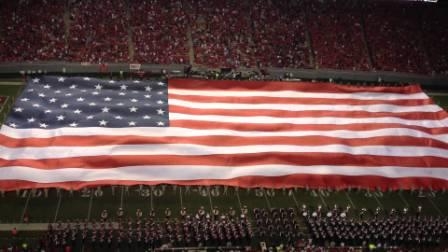Military students: 3 things to look for in an MBA program

This post was originally published Nov 4, 2014 on MBA.com, the official site of the GMAT(R) exam. Christine Ferrell, marketing director for the NC State Jenkins Graduate School of Management, submitted the post.
 Veterans Day (celebrated on Nov. 11 in the US), also known as Armistice Day and Remembrance Day in other parts of the world, is a great time to recognize the importance and value of educating our future military leaders, whether to help them better serve in the military or in transition to the private sector. On the whole, higher education administrators have observed that the leadership, skills training, and discipline instilled in the military translate into highly successful graduate business students.
Veterans Day (celebrated on Nov. 11 in the US), also known as Armistice Day and Remembrance Day in other parts of the world, is a great time to recognize the importance and value of educating our future military leaders, whether to help them better serve in the military or in transition to the private sector. On the whole, higher education administrators have observed that the leadership, skills training, and discipline instilled in the military translate into highly successful graduate business students.
So what makes an MBA program military-friendly, and what should military applicants look for in a school? Here are three things you should consider.
1. Identify a format that meets your needs.
MBA programs nationwide are offered in various formats, frequently encompassing full-time, part-time (for working professionals) and online. The latter is typically the most flexible, especially for individuals who are deployed. For example, NC State’s Jenkins Online MBA program is almost 100% asynchronous, meaning students complete their classes anytime, anywhere. And, NC State waives the usual required three-day residency for active duty military students, who may take another elective course to make up the course credit. We hear from our military students that without these flexible options, an MBA would not be possible.
Additionally, the University of North Carolina 17-campus system has recently launched a new website promoting all of its fully-online degree programs: https://online.northcarolina.edu/. This is a great resource for applicants, especially those on active or reserve duty, to find UNC system programs that may meet their high level of flexibility needs.
2. Consider curriculum that will enhance your skill sets.
Military applicants transitioning into private-sector careers are often concerned about how the skills and knowledge they gained in the military will translate to industry. Be sure to research the curriculum and any areas of concentration to determine whether a program is the best fit for you, your existing experience and your future career goals.
The NC State approach, which we dub, “Think and Do,” emphasizes a practical method to an MBA education. All of our full-time and part-time (professional) MBA students are required to complete a practicum course, which pairs them as a team with a real company project. This gives them a safe place to apply their skills and knowledge in a private sector setting, and frequently leads to job offers. More specifically, we have found that military MBA students are phenomenal candidates for NC State’s Supply Chain Management program, which complements the operations and logistics skills often acquired through military experience. We offer scholarships in this program that cover full tuition and offer a stipend, enabling military students to save any military benefits for future studies or dependents.
3. Investigate support services and military benefits.
When exploring schools, check into military-specific support services and benefits that are available during the application process and throughout your time in school. For example, some programs – like the NC State Jenkins MBA – may waive the application fee and consider military services in the GMAT waiver application. Schools regularly also assist student veterans and their dependents while applying for and navigating tuition assistance programs, such as VA Education Benefits – including Post 9/11 GI Bill and Yellow Ribbon Program.
- Categories:


